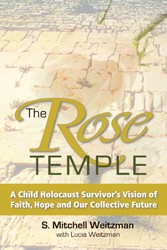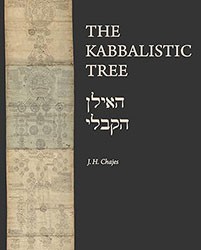Rav Kook by all accounts was a tremendously seminal and prolific figure with respect to twentieth-century Judaism in general and the beginnings of Zionism and the Jewish State in particular. Yehudah Mirsky’s sensitive and deeply engaging biography of this saintly, mystical individual depicts him as very much a product of the zeitgeist in which he lived, full of revolution, the search for personal meaning, and serious attempts to improve and redeem mankind. Mirsky quotes widely from R. Kook’s writings composed in Europe and Israel, both from those that are more popularly known, as well as the musings and thoughts contained in his numerous private notebooks, in order to convey the Rabbi’s restless and profoundly creative mind and soul.
R. Kook’s sacrificial and idealistic drive to translate his personal vision for Judaism as it ought to be manifested in the land of Israel into a reality, not only forced him to work tirelessly to try to realize his dream, but also resulted in his being subjected to withering attacks from those to his right and left. Despite often feeling profoundly alone and isolated, Mirsky movingly describes how his subject persevered in arguing for and exemplifying Jewish unity as an overarching value and necessity in the face of the great partisanship and fractious jockeying for power and control among the different elements within Israeli society, that in his view, threatened the future of the entire enterprise. R. Kook’s closest disciples are described in detail, and the author devotes a portion of one of the final chapters to summarizing what happened to each of them, particularly following their beloved and revered mentor’s death in 1935.
The author concludes with the provocative assertion that occupying the Chief Rabbinate did not play to most of R. Kook’s personal strengths, and one can only wonder what he might have achieved had he not been thrust into and decided to accept this position. Yehudah Mirsky’s account of the life of this exceptional religious leader is must reading for anyone wishing to better understand R. Kook and his times.
Meet Sami Rohr Prize Finalist Yehudah Mirksy
Jewish Book Council is proud to introduce readers to the five emerging nonfiction authors named as finalists for the 2016 Sami Rohr Prize for Jewish Literature. Today, we invite you to learn more about Yehudah Mirsky and his book Rav Kook: Mystic in a Time of Revolution, a biography of the first chief rabbi of Jewish Palestine and founding theologian of religious Zionism that delves into the struggle of one of the most influential — and controversial — rabbis of the twentieth century to understand and shape his revolutionary times.
A warm congratulations to Yehudah and the other four finalists: Aviya Kushner, Dan Ephron, Lisa Moses Leff, and Adam D. Mendelsohn. Be sure to check back soon to see which of these authors will be taking home the $100,000 prize!
What are some of the most challenging things about writing nonfiction?
I think that form and genre are deeply related to the substance of what we have to say. Some things are best said in a book-length essay, like this book I’ve written. Others are best said in fiction, or plays, or poems, or avowedly devotional texts, or, what can you do, in academic monographs with platoons of footnotes.
What or who has been your inspiration for writing nonfiction?
Too many to name — but above all my father, Rabbi Professor David Mirsky, who passed away in 1982, when I was 21 years old, and still teaches me, every blessed day.
Who is your intended audience?
In this book I tried to cast a wide net, to write something of interest to interested readers — Jewish or not — and to committed Jews of all persuasions, to rabbis and educators, to scholars in fields ranging from history to theology to politics. That I could even think of trying that was because I was writing about an extraordinary figure who himself — in his life story and breadth and depth of his thought — speaks to that entire spectrum, and more.
Are you working on anything new right now?
Yes, several things. I’m currently completing a scholarly volume (platoons of footnotes and all) on Rav Kook’s intellectual biography before his moving to the Land of Israel at age 38, in 1904. For all the vast scholarship on him (mainly in Hebrew), there’s still not much in the way of intellectual biography, especially not on this crucial, formative period of his life. I’m also translating volumes of Midrashim written and published in Hebrew by learned contemporary Israeli women, edited by my wife, Tamar Biala. These are very powerful texts that will be great to bring to English readers.
I’ve also begun some other projects. In recent years I’ve written a number of essays on the shape of modern Jewish history, in particular on the many answers given to what the great essayist Ahad Ha’Am characterized as “the problem of the Jews and the problem of Judaism,” — answers like ultra-Orthodoxy, Zionism, Jewish Socialism, Nationalism, Liberalism — and how those answers have regularly mixed, matched and pulled against each other. These stories both reflect and have played a role in larger dramas in world history, like the rise of the nation-state, and I’m hoping to pull those together. Another project I’m working on is rethinking the idea of human rights in order to save it. The colossal moral struggles of the twentieth century yielded, at least for a while, a unprecedented consensus among many — though of course not all — people that there are some things that states are simply not allowed to do to people. That is a precious commitment, won at terrible cost, and we need to find ways to reground it for the twenty-first century and beyond. I really want to write about that. And now and then I scratch at some more purely literary projects too.
What are you reading now?
Yeshayahu Halevi Horowitz, Sefer Shnei Luchot Ha-Berit
Yehoshua Fischel Schneerson, Chaim Gravitzer: Sippuro shel Nofel
Robert D. Kaplan, In Europe’s Shadow: Two Cold Wars and a Thirty-Year Journey through Romania and Beyond
Steven Nadler, A Book Forged in Hell: Spinoza’s Scandalous Treatise and the Birth of the Modern Age
If you had to list your five favorite books…
That’s impossible to answer, like asking who’s your favorite child? I can mention a few of the books that have moved me deeply and in some ways changed or saved my life, though there are many more.
Chaim Grade, The Yeshiva
Saul Lieberman, Hellenism in Jewish Palestine
Czeslaw Milosz, Bells in Winter
Reinhold Niebuhr, The Nature and Destiny of Man
Shakespeare, As You Like It
Zelda, Kol Ha-Shirim
When did you decide to become a writer? Where were you?
I’ve loved words and the magic they bring for as long as I can remember. My father, of blessed memory, was a professor of literature, and came from a family of gentle storytellers. There was no point of decision to become a writer — but many points of mustering the self-confidence that I had something worth saying and knew how to say it. That’s a decision I need to make — as honestly as I can — every time I sit down to try and write.
How do you write — what is your private modus operandi? What talismans, rituals, props, do you use to assist you?
I wish I knew, and I might be a bit more disciplined if I did. I read a lot, talk a lot, and I drink a lot of coffee. I try to write longhand when I can, for the sheer feel of moving pen along paper. I love working in cafés and libraries — though much of this book was written at our dining/living room table and in the basement clinic of an art therapist who let me use her workspace during off-hours. I almost always listen to music when I write. It’s like oxygen.
What do you want readers to get out of your writing?
I’d like them to come away with a little more historical knowledge about how and why our world today has taken shape, and with some hopefully helpful perspectives on how to look at things. It’s my hope that the fusion of words and ideas that I offer them will open spaces in their own minds for further thinking and exploration on their own terms. And didactic as it sounds, I do hope that the things we read and write will help make us want to be kinder to one another in our own lives.
Yehudah Mirsky is an American-Israeli Associate Professor of Near Eastern and Judaic Studies at Brandeis. He studied at Yeshivat Har Etzion and Yeshiva College and received rabbinic ordination in Jerusalem. He graduated from Yale Law School, where he was an editor of the law review, and completed his Ph.D. in Religion at Harvard. Yehudah served in the United States State Department’s human rights bureau in the Clinton Administration, and was a Red Cross chaplain following the events of 9/11. He tweets @YehudahMirsky
Related Content:
- Jennifer Traig: Convertibles in the Snow
- Austin Ratner: My Name Is Inigo Montoya
- The 2016 Sami Rohr Prize for Jewish Literature Finalists





